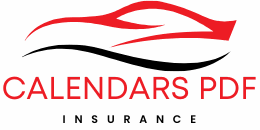Homeowners insurance provides financial protection from damage to your property, so understanding which coverage options typically cover them is key in choosing the appropriate policy for you.
Dwelling coverage is at the core of every homeowners policy, covering costs associated with rebuilding or replacing personal possessions in case of disaster. But you also should consider additional coverage options for structures like sheds or garages as well as personal property floaters and liability.
1. Homeowners Insurance
Homeowners insurance provides financial security against the risk of property destruction or damage from covered disasters, offering protection from loss or destruction through multiple policies that offer specific perils coverage. Of these policies, one that stands out is known as an HO-3 policy as providing comprehensive protection that covers both personal property and liability protection.
Dwelling coverage provides funds to repair or rebuild your house in the event it is destroyed by fire, as well as coverage for other structures like garages, tool sheds or gazebos on your property. Most standard homeowners policies also include coverage for such additional structures as well.
Additional living expenses coverage provides hotel or rental costs should your house become uninhabitable due to a covered event, while equipment breakdown coverage provides for the repair or replacement of appliances such as furnace, air conditioners and kitchen appliances that have been damaged by such events.
Personal property coverage covers your possessions if they’re stolen or destroyed due to covered perils, up to the policy limit. Identity theft coverage helps restore credit histories damaged due to compromised personal information as well as cover any financial losses that result.
2. Flood Insurance
Flooding is one of the most widespread natural disasters in the US, often leading to significant destruction and loss for homes, businesses, vehicles and property. Standard homeowner, renter and business policies don’t cover flooding so having a separate flood policy is crucial – the National Flood Insurance Program (NFIP) offers coverage to property owners living in areas at risk from flooding through standard policies offering building and contents coverage with different deductible options.
An NFIP policy covers direct physical flood damage to your home or business, such as foundation walls, electrical and plumbing systems, built-in appliances like refrigerators and stoves, cabinetry paneling bookcases and detached garages. In addition, this coverage extends to your personal belongings such as furniture, clothing and electronics.
Mortgage lenders require National Flood Insurance Program (NFIP) policies on properties located in high-risk flood zones; it isn’t, however, required in moderate or low risk flood zones. Furthermore, if your property falls into one of those high-risk zones but its land elevation exceeds the base flood elevation (BFE), FEMA offers Letter of Map Amendment or LOMA relief from their flood insurance requirements.
3. Earthquake Insurance
If you live in an earthquake-prone area, earthquake insurance policies provide comprehensive protection for both your home and belongings. As well as covering repairs or replacement costs related to earthquake damage, such policies often cover additional living expenses (ALE).
Cost of earthquake policies depends on several variables, including your home’s construction type and whether or not it sits near known fault lines, among others. Therefore, it’s essential that you consult with a RamseyTrusted professional about how best to meet your specific needs while remaining financially sustainable for premiums and deductibles on an earthquake policy.
Earthquake policies typically include personal property coverage for items like furniture and televisions, as well as loss assessment coverage to cover your share of repair costs for shared spaces such as pools or masonry structures within condominium units. They may also cover loss assessment expenses related to shared areas like pools or masonry structures that form part of condominium units; this policy may exclude items like landscaping, fences and collectibles; however, some insurance companies provide CEA policies which specifically cover them.
4. Personal Liability Insurance
Personal liability coverage helps cover any damages if an accident happens at your home and is your responsibility. It is often included as standard coverage in home, condo and renters policies and could cover things like medical costs, legal fees and more – for instance if someone slips and falls, breaking their arm, or your child throws a baseball through their neighbor’s window without permission, personal liability may help pay their damages.
Umbrella insurance is a separate policy designed to provide additional liability protection above and beyond what’s offered by home and auto policies, protecting from claims such as slander, false arrest and malicious prosecution. Umbrella policies can provide invaluable financial security in unexpected situations or simply want wider liability protection than what your current policies can provide – usually offering limit options of up to $1 Million! It’s best to discuss your individual needs with one of Chubb’s representatives.
5. Umbrella Insurance
Umbrella insurance provides extra liability protection above and beyond what your home, auto or personal property policies can cover, making it an economical way to safeguard you and your family against costly legal judgments. For instance, should someone become injured from using your swimming pool, trampoline or boat or sue for defamation due to negligence on your part, an umbrella policy can protect both assets and future income against costly legal judgments that result from legal cases brought against you – providing peace of mind when legal judgments come rushing in from third parties or lawsuits being brought against you as an umbrella policy is comprehensive coverage against legal judgments brought by third parties seeking significant monetary settlements against being made against you by law courts against significant financial settlement claims from third parties involved claiming potential legal judgments being brought against them from third-party liability claims brought by third-party claims of negligence on you part for example or being sued for defamation cases it provides extra protection from expensive legal judgements or lawsuits being brought against you by these policies providing extra liability protection above the limits provided by home, auto and personal property policies alone if someone claims against them because an umbrella policy will provide extra liability protection beyond what your coverage provides – should they come against legal judgments which would leave them financially exposed. An umbrella policy could help safeguard your assets and future income against potentially significant monetary settlement claims by being protected by it being covered by substantial legal judgements from being sued due to these assets being sued defamation suits being settled out from having their assets being sued due to defamation lawsuits being sued; an umbrella policy could help cover in case they need or personal property policies by in case they need legal judgment is filed against them for defamation claims being sued as well.
Umbrella coverage can be particularly helpful for high-net-worth individuals who own numerous assets or potentially hazardous items that increase their exposure to risk, and small business owners looking to protect key financial assets and future income streams from loss.
For help determining if an umbrella policy is right for you, start by totaling up your net worth – which includes assets like property and savings as well as debts such as a mortgage or car loan. Professionals can tailor coverage according to current risks and lifestyle needs while regularly reviewing coverage needs as life evolves.




